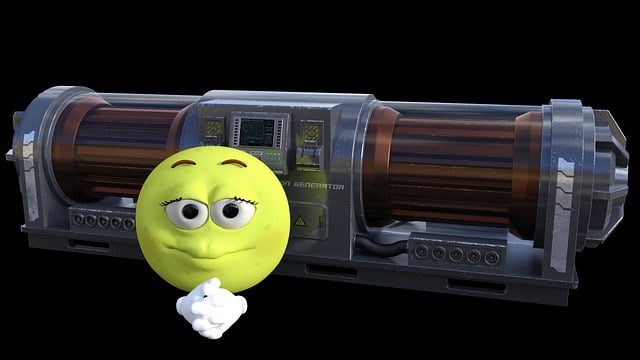How Is Machine Learning Improving Healthcare?
Think of machine learning as a super-smart assistant that never sleeps. It’s like having a medical expert who sifts through mountains of data, spotting patterns and insights that human eyes might miss. For instance, machine learning algorithms are now analyzing medical images with incredible accuracy. They can detect early signs of diseases such as cancer, often more precisely than radiologists. This means catching potential issues earlier, which can lead to more effective treatments and better outcomes for patients.
But it doesn’t stop there. Machine learning is also personalizing treatment plans. Imagine a prescription tailored just for you based on your unique health data. Algorithms analyze your medical history, lifestyle, and genetic information to recommend the most effective treatments. It’s like having a custom-made plan designed specifically for your needs.
Furthermore, machine learning is improving patient care by predicting potential complications. For example, algorithms can forecast which patients are at higher risk of developing certain conditions, allowing doctors to take preventative measures. This proactive approach can significantly enhance patient outcomes and reduce the strain on healthcare systems.
In essence, machine learning is making healthcare smarter and more efficient. It’s turning data into actionable insights, making diagnoses more accurate, treatments more personalized, and overall care more effective. As this technology continues to evolve, we can expect even more groundbreaking improvements in how we manage and improve health.
Transforming Medicine: How Machine Learning is Revolutionizing Healthcare Diagnostics
Machine learning works like a supercharged detective. It sifts through vast amounts of medical data—think of it as having a team of expert analysts who never tire—and spots patterns that even the most skilled doctors might miss. For instance, these algorithms can analyze thousands of medical images in seconds, identifying signs of diseases like cancer with unprecedented precision. It’s like having a personal assistant who’s always one step ahead, catching issues before they become serious problems.
But how does it actually work? Machine learning models are trained on enormous datasets containing various examples of diseases and healthy conditions. Over time, they learn to recognize subtle differences between them, much like how we pick up on familiar faces in a crowd. The result? Faster and more accurate diagnoses that save lives.
Furthermore, these systems are continuously improving. The more data they process, the sharper they get. It’s similar to how your smartphone gets better at understanding your voice over time. This ongoing enhancement means healthcare diagnostics are not just getting better—they’re getting smarter, more intuitive, and more precise with every advancement.
So, if you’ve ever wondered how technology could possibly make such a huge difference in healthcare, look no further than machine learning. It’s transforming medicine in ways that were once thought to be the stuff of science fiction, bringing us closer to a future where diagnoses are swift, accurate, and reliable.
AI’s Healing Touch: The Impact of Machine Learning on Personalized Medicine

The impact is profound. Machine learning algorithms sift through intricate data patterns that are too complex for humans to decipher alone. They can predict how different treatments will affect you based on your specific genetic makeup. For instance, if you have a rare genetic variant, machine learning can help identify which drugs are most likely to be effective, significantly improving your chances of recovery.
This isn’t just about making healthcare more efficient; it’s about making it more humane. By leveraging AI, we’re moving towards a future where treatments are not only more effective but also kinder to each patient. Instead of battling through trial and error, you get a customized plan that aligns perfectly with your individual needs.

From Data to Diagnosis: How Machine Learning is Enhancing Healthcare Efficiency
Here’s the kicker: machine learning algorithms can spot patterns and anomalies that are often invisible to the human eye. It’s like having a detective who never misses a clue. These algorithms learn from vast datasets, continuously improving their accuracy over time. For example, they can analyze thousands of X-rays or MRIs in seconds, identifying early signs of diseases like cancer that might otherwise go unnoticed.
But the benefits go beyond just spotting problems. Machine learning can predict potential health issues before they even arise. Picture it as a crystal ball that forecasts your health future. By examining your health history and comparing it with similar cases, these systems can alert you to potential risks, allowing for early intervention and prevention.
In day-to-day practice, this means doctors are less bogged down with routine tasks and more focused on patient care. The efficiency of machine learning reduces the time spent on administrative work, enabling healthcare professionals to spend more time with patients, discussing treatments, and providing personalized care.
So, the next time you hear about machine learning in healthcare, think of it as your personal health assistant, working tirelessly behind the scenes to make sure your health journey is as smooth and effective as possible.
Predictive Power: How Machine Learning is Shaping the Future of Disease Prevention
Think of machine learning as a supercharged detective, piecing together clues from medical records, genetic data, and lifestyle factors to predict who might be at risk for certain diseases. For example, if you’ve ever wondered how your diet or exercise habits could affect your future health, machine learning models can provide insights tailored just for you. They crunch numbers and analyze trends, turning complex data into actionable advice.
This technology is also revolutionizing early diagnosis. It’s like having a medical scan that doesn’t just spot issues when they’re glaringly obvious but can predict potential problems before they even arise. Imagine getting a heads-up about a health risk before symptoms even show up, allowing for interventions that can be life-saving.
Machine learning’s predictive power extends to personalized medicine, too. It’s as if your treatment plan is custom-designed just for you based on your unique data. Instead of a one-size-fits-all approach, these algorithms ensure you get the most effective care tailored to your specific needs.
In essence, machine learning is transforming disease prevention from a reactive to a proactive field, making our health strategies smarter, more efficient, and incredibly insightful.
